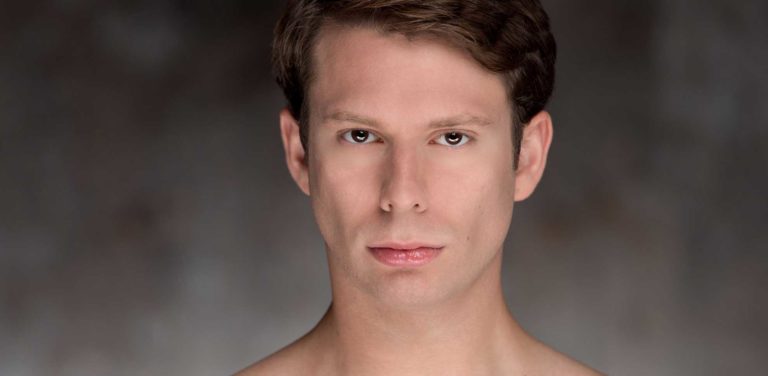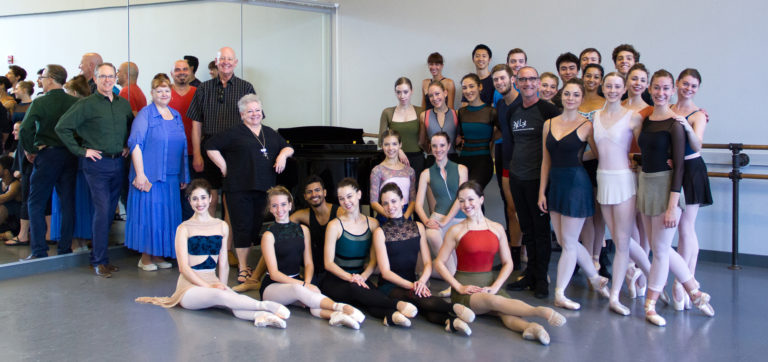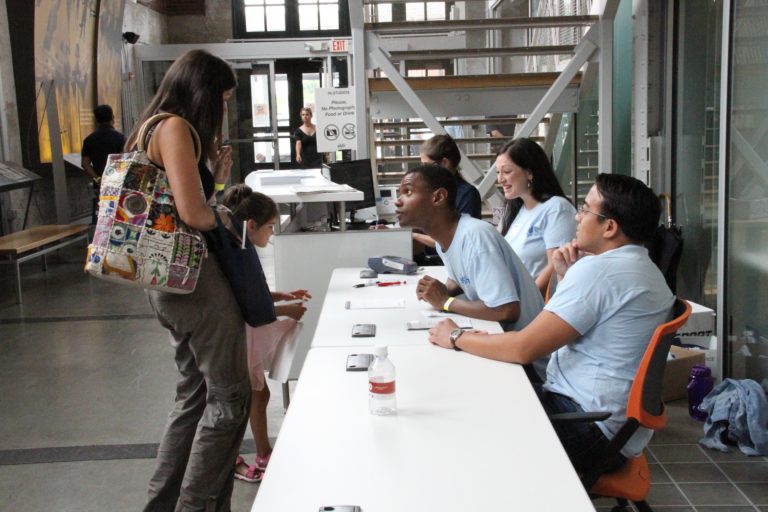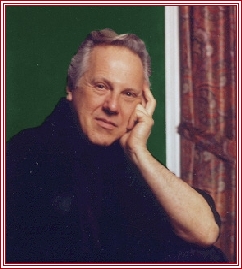
Robert Moran created the original musical composition for Val Caniparoli’s The Lottery, based on the short story by Shirley Jackson. It is one of the three works on Kansas City Ballet’s “Director’s Choice” program at the Kauffman Center May 12-21. We were able to ask him a few questions about the ballet in an email interview.
QUESTION TRADITION
Kansas City Ballet: How do you feel about the story by Shirley Jackson? Is there a particular take-away that you think is most important?
Robert Moran: “The Lottery” is brilliant. For today (or any day)…. question everything! Never use “I did what I was told.” Question tradition. Not much to add on that one… it’s rather like a YANKEE “Rite of Spring”.
THE COLLABORATION
Robert Moran: I did fly out to San Francisco and visit with Val [Caniparoli] over the work. At that time we had a charming visit with Shirley Jackson’s son (he must be about my age), who told us exactly how she wrote it, how it was quickly published and how she immediately became famous/infamous (her community angry; everyone thought she had written about them).
Of course I had read THE LOTTERY in high school when it was relatively new, and loved it. Over the past few years, I have viewed a film with Nicole Kidman called DOGVILLE, which must contain the same ‘generous and kind’ community of people who ‘get what they deserve’ in the final scene.
Val simply told me about the number of dancers, why he did this and not that with the characters….. and how he wanted to have a real lottery on the stage, making the final ‘stoning’ quite unnerving for the ‘selected one’. The idea that this lottery and outcome was an annual event that no one questioned was/is startling to me. That “…..but I just did what I was told” we hear far too frequently. Really horrific.
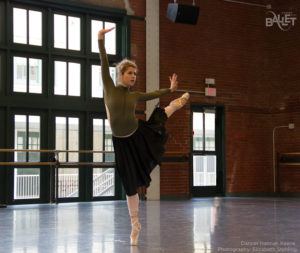
I organized the various ‘scenes’ myself…. I do believe that Val said something about these ‘good folk’ ‘going to church’ (although I think Jackson makes it clear that this lottery was on a Thursday, something like that). I sketched out on paper the scenes and how we would get from one to the next, including the gentleman who ‘runs the event’, his wife, etc.
With a real lottery on the stage, I had to compose a repeated pattern (not knowing just how long this would take for a lottery of 18 characters)….. Pause, and then the final ‘stoning’. I had known that there were and possibly are farming communities who kill animals/fish and bury them ‘as a way of hoping for a good harvesting result’.
The collaboration was at a great distance: East and West Coasts….. but I’d write Val and say “I’m doing it this way…OK?” and he always replied, “That’s fine. Do it.”
COMPOSING THE SHOCK
Robert Moran: I must admit that writing ABOUT such a work is much more difficult for me than actually composing the music. Words may attempt to explain, but with music as a non-verbal form of communication, it’s just nearly impossible.
For the approach to the score: I planned out on paper, like some architectural structure, the scenes leading up to the lottery itself…. in a good Capricorn fashion. I looked over the entire plan then put down an approximate duration for each section and how one might move from that into the next part…..Once these were clear to me, then I simply started ‘at the beginning’ and went to the end. As mentioned, with the lottery being ‘open ended’ I had to find a repetition of materials with hopes that the tension would build. There is no specific moment that sets the tone…. the entire work needs to build to the solo finale! I had NO idea how Val planned the final “stoning”, and was not able (due to illness) get to the Salt Lake City premiere. The gala performance with a marvelous orchestra in Chicago solved that problem most effectively and left the audience gasping!!
I cannot describe the music in words, but just hope it is effective and works for the dancers and the public. Of course one major ‘problem’ with the lottery is that, in reading this short story, one really has no idea what is going to happen until the very last page….that is the shock. The major portion of the dance work (and the story) is “showing” a polite, New England community going through its everyday activities….. but built around this peculiar lottery, not explained until the final section.
For example with The Lottery (as with the short story), one clearly cannot give away the conclusion of the work. I kept thinking “How do I present material that somehow becomes slightly peculiar as the work progresses? Should I include dissonant sounds upon the first appearance of the lottery box and ‘moderator’? No, that couldn’t work….” So I just tried to keep the musical materials tight, tighter as one moved toward the lottery itself. Even trying to explain this makes little sense.
I believe that Val’s staging of a ‘real’ lottery with no one knowing the outcome other than SOMEONE in the group must deal with the ferocious final dance, that would (I hope) come through as visual tension.
As written before, it’s best to question everything political, everything social and remove traditions which are useless, ineffective and in some cases dangerous!
BIOGRAPHY
ROBERT MORAN | COMPOSER (THE LOTTERY)
Robert Moran has written his place into the rich tapestry of contemporary music that has flourished in the second half of the twentieth century. Mr. Moran’s work points to an underlying philosophy that sees music as a shared experience. His “graphic” scores have been exhibited throughout the world, including Berlin’s Academy of Art and the Lincoln Centre Library for the Arts. Mr. Moran co-founded the San Francisco New Music Ensemble at the San Francisco Conservatory of Music in the mid-1960s. He worked in West Berlin as composer-in-residence as a guest of the German government. A year before Mr. Moran returned to the U.S. as a composer-in-residence at Northwestern University in 1977, he wrote WALTZ IN MEMORIAM: MAURICE RAVEL. The entire collection was premiered at Chicago’s Art Institute in 1978 and recorded as “Waltz Project” in 1981, becoming one of the most fascinating ventures of the late ’70s. The Waltz Project has been choreographed by Peter Martins, NYC Ballet, with other performances via San Francisco Ballet, Miami City Ballet and Pennsylvania Ballet.

